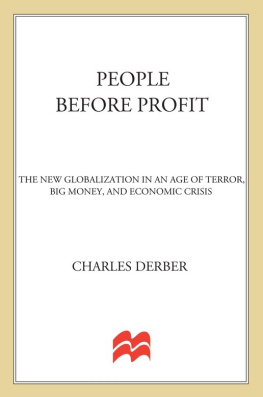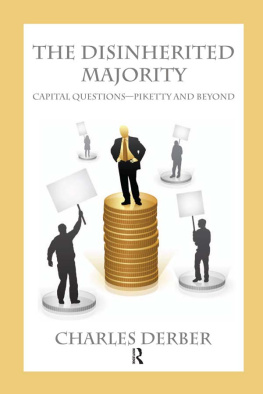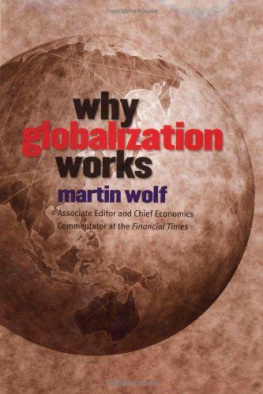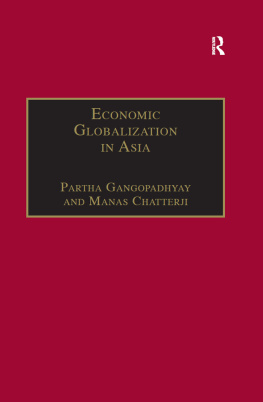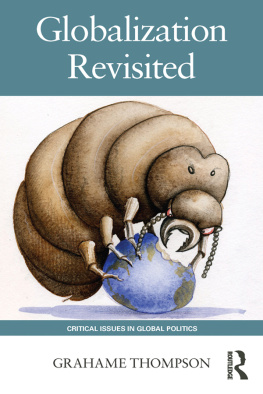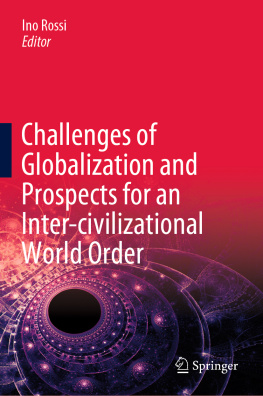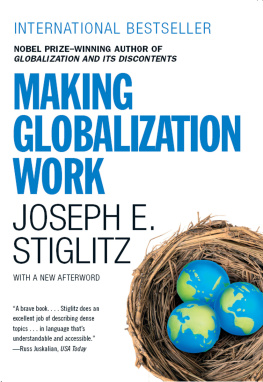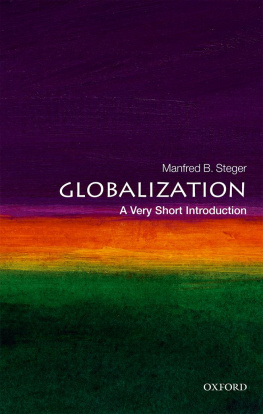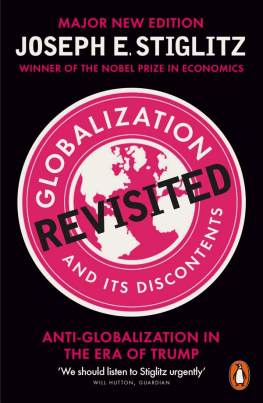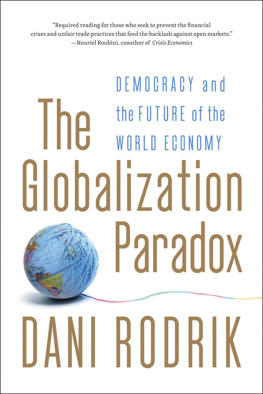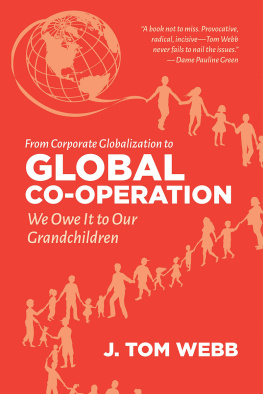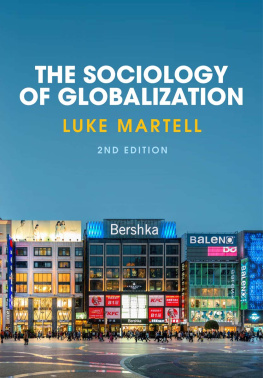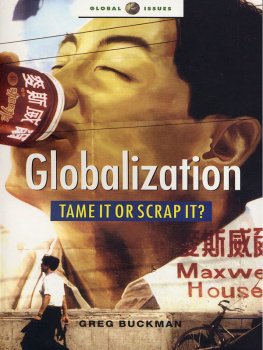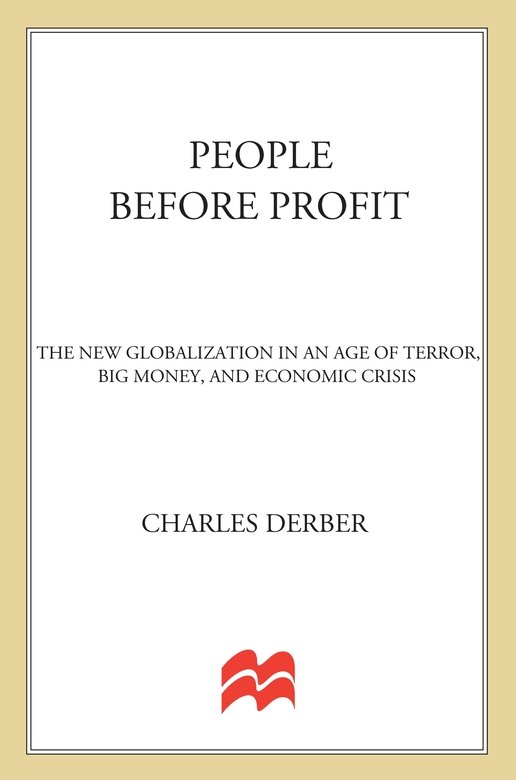Charles Derber - People before profit: the new globalization in an age of terror, big money, and economic crisis
Here you can read online Charles Derber - People before profit: the new globalization in an age of terror, big money, and economic crisis full text of the book (entire story) in english for free. Download pdf and epub, get meaning, cover and reviews about this ebook. City: New York, year: 2013, publisher: St. Martins Press, genre: Politics. Description of the work, (preface) as well as reviews are available. Best literature library LitArk.com created for fans of good reading and offers a wide selection of genres:
Romance novel
Science fiction
Adventure
Detective
Science
History
Home and family
Prose
Art
Politics
Computer
Non-fiction
Religion
Business
Children
Humor
Choose a favorite category and find really read worthwhile books. Enjoy immersion in the world of imagination, feel the emotions of the characters or learn something new for yourself, make an fascinating discovery.
- Book:People before profit: the new globalization in an age of terror, big money, and economic crisis
- Author:
- Publisher:St. Martins Press
- Genre:
- Year:2013
- City:New York
- Rating:4 / 5
- Favourites:Add to favourites
- Your mark:
People before profit: the new globalization in an age of terror, big money, and economic crisis: summary, description and annotation
We offer to read an annotation, description, summary or preface (depends on what the author of the book "People before profit: the new globalization in an age of terror, big money, and economic crisis" wrote himself). If you haven't found the necessary information about the book — write in the comments, we will try to find it.
Abstract: The issue of globalization-its promises, and more often, its shortcomings-commands worldwide attention. Recent events illuminate the dark side of globalization and underscore the urgent need to redesign its basic principles. The terrorist attacks on September 11, 2001 are one in a series of crisis that have shaken the foundations of the global order. The rise of strong anti-globalization movements around the world, the deteriorating global economy, including Americas own economic turbulence, and an ever-growing distrust of powerful multinational corporations in the face of catastrophic mismanagement, symbolized by Enron and WorldCom, dramatize the failure of globalization. For a safe and economically secure future, Charles Derber argues in People Before Profit we must de-bunk the myths about our current form of corporate-led globalization and re-orient ourselves on a more democratic path. Popular misconceptions, what Derber terms the globalization mystique, present globalization as new, inevitable, self-propelling, and win-win for rich and poor countries alike. By challenging each of these beliefs, Derber reveals a dynamic system that is constantly being invented and re-invented-and can be again. Globalization does not have to be a race to the bottom where the poverty gap grows ever wider and half the world lives on less than two dollars a day. In fact, Derbers hopeful and detailed vision of reform, including practical suggestions for every concerned citizen, shows that globalization has the potential to be an authentic agent of democracy, social justice, and economic stability. The challenges are great; the new globalization will require deep and difficult changes, as well as a new politics that shifts power away from the elite. But the seeds have already been planted and the new globalization is beginning to emerge. In a moment rich with opportunity, People Before Profit is an essential contribution to the most important debate of our times, written in clear, straight-forward prose for everyone seeking a better world
Charles Derber: author's other books
Who wrote People before profit: the new globalization in an age of terror, big money, and economic crisis? Find out the surname, the name of the author of the book and a list of all author's works by series.

